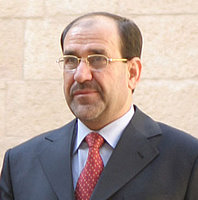On Oct. 20, Iraq will embark on the next phase of development of its hydrocarbon sector by auctioning rights to three natural gas fields to private investors. For Baghdad, the success of this bid round, the third in the last two years, will go some way toward determining its ability to address Iraqi citizens' concerns over power shortages. For outsiders, including many in European capitals and Washington, the comprehensive development of the Iraqi gas sector offers hope that in the medium term, Iraqi gas could begin to compete directly with Russian gas in the European market.
The fields on offer -- Siba, Mansuriyah and Akkas -- contain over 300 billion cubic meters (bcm) of reserves, according to the Iraqi Oil Ministry, but could be much larger. As a comparative measure, total gas demand in OECD Europe for 2007 was 544 bcm, according to the International Energy Agency. Importantly all three fields are exclusively gas fields, as opposed to a mixture of oil and gas, which means their development and production will not depend on the vicissitudes of the global oil market, or on Iraq's future re-entry into the OPEC oil production quota system, as is the case with gas production at major combined oil-and-gas fields like West Qurna and Rumaila, among others.
While the previous two bid rounds were runaway successes for Oil Minister Hussain al-Shahristani and the government of Prime Minister Nouri al-Maliki, the outcome of Wednesday's round is far from certain. Two of the fields on offer -- Akkas and Mansuriyah -- were available in the June 2009 round but were not awarded: One consortium submitted a bid for Akkas but proposed a remuneration fee 450 percent higher than the maximum fee allowed by Baghdad, while no bids were made for Mansuriyah. Thirteen companies have been cleared to participate in this week's bid round, but reports suggest that at least two of these firms will sit out. The round itself was slated to occur on Sept. 1, but has been delayed twice.

